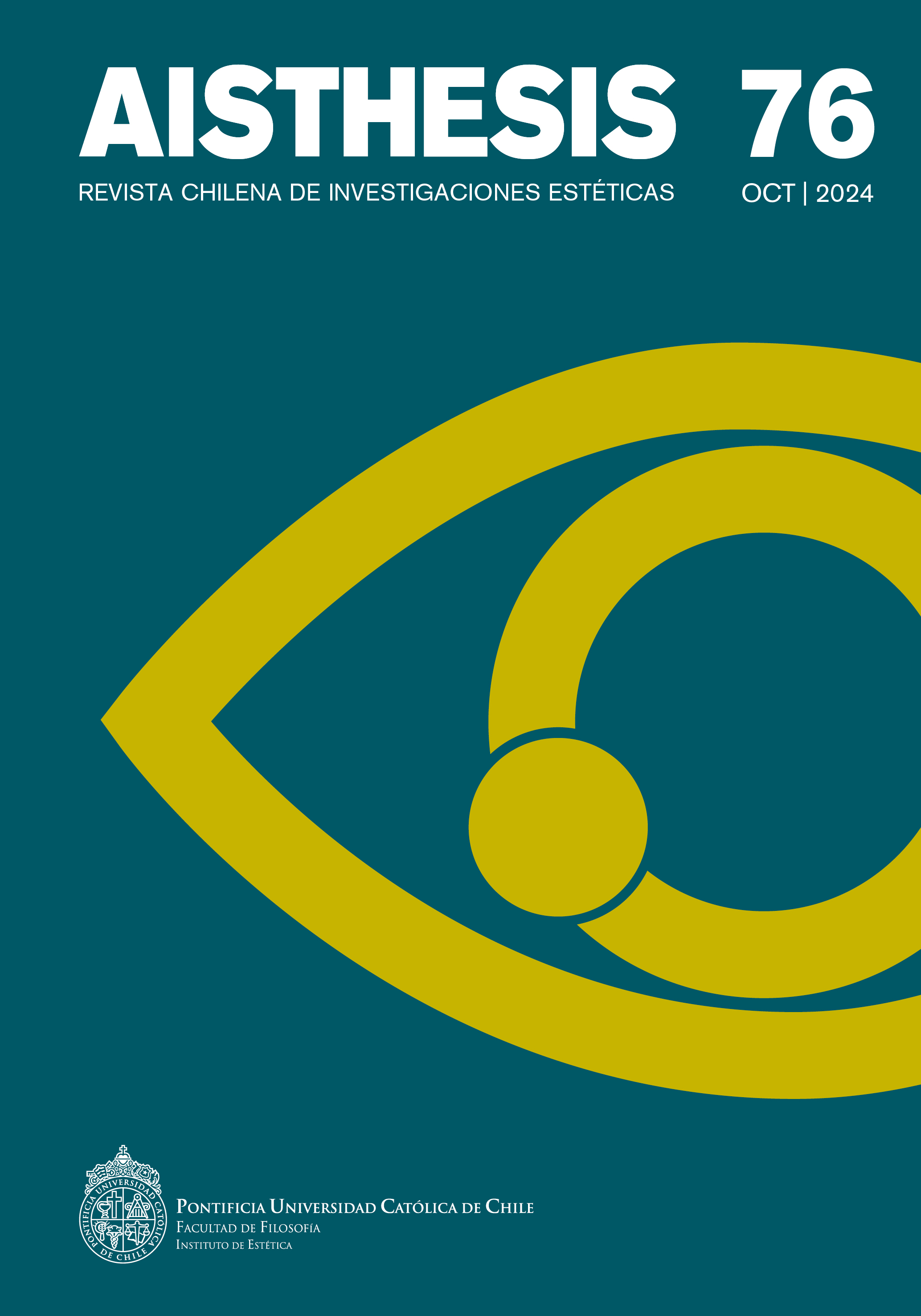Considerations on the Family in Th. W. Adorno and M. Horkheimer Authority, the Individual and the Capitalist Social Totality
Main Article Content
Abstract
The article examines Adorno and Horkheimer's analysis of the bourgeois family and its crisis within advanced capitalism, particularly in relation to the development of authoritarian tendencies in Western societies. The bourgeois family held a dialectical tension as a mediating institution between the individual and the social whole: while it facilitated the internalization of social domination, it also contained elements that resisted the instrumental rationality necessary for individuality. However, the social conditions of advanced capitalism disrupt this tension—based on the interplay of patriarchal authority and maternal love—further weakening the self and fostering the development of authoritarian dispositions.
Downloads
Article Details

This work is licensed under a Creative Commons Attribution-NonCommercial-ShareAlike 4.0 International License.
All contents of this electronic edition are distributed under the Creative Commons license of "Attribución-shareAlike 4.0 Internacional" (CC-BY-SA). Any total or partial reproduction of the material must mention its origin.
The rights of academic works published in this publication belong to their authors., who grant to AISTHESIS: Revista Chilena de Investigaciones Estéticas the license for its use. The management of the permits and the authorization of the publication of the images (or of any material) that contains copyright and its consequent rights of reproduction in this publication is the sole responsibility of the authors of the articles
References
Referencias
Adorno, Theodor W. «Capitalismo tardío y sociedad industrial», 1968. Obra completa 8, Escritos sociológicos I. Akal, 2005 pp. 330-344.
––. «El problema de la familia», 1955. Obra completa 20, Miscelánea I. Akal, 2005, pp. 305-312.
––. «El problema del nuevo tipo humano», 1941. Revista Laguna, nº 48, 2021, pp. 9-17.
––. «Individuo y organización», 1953. Obra completa 8, Escritos sociológicos I. Akal, 2005, pp. 412-426.
––. «La teoría freudiana y los esquemas de la propaganda fascista». Ensayos sobre la propaganda fascista. Psicoanálisis del antisemitismo. Voces y Culturas, 2003, pp. 23-52.
––. Minima moralia. Reflexiones sobre la vida dañada, Obra completa, 4. Akal, 2004.
––. «Reflexiones sobre la teoría de clases», 1942. Obra completa 8, Escritos sociológicos I. Akal, 2005. pp. 347-364.
––. «Teoría de la pseudocultura». Sociológica. Taurus, 1966, pp. 175-199.
Adorno, Theodor W. y Max Horkheimer. Dialéctica de la ilustración. Trotta, 2018.
––. «Familia», 1966. La sociedad. Lecciones de sociología. Proteo, 1969, pp. 130-148.
Benjamin, Jessica. «Authority and the Family Revisited: Or, a World without Fathers?». New German Critique, Special Feminist Issue, nº 13, 1978, pp. 35-57.
Brown, Heather A. Marx on Gender and Family. A critical Study. Historical Materialism Series, nº 39. Brill, 2012.
Catalina Gallego, Cristina. «Lo abyecto y lo escindido. Elementos para pensar las relaciones de género desde la Crítica de la Economía Política». Azafea: Revista de Filosofía, nº 25, 2023, pp. 239-274.
––. «Trabajo, desposesión y sufrimiento en el capitalismo. De la crisis del mundo liberal al neoliberalismo». Bajo Palabra, época II, nº 33, 2023, pp. 49-80.
Cook, Deborah. «Adorno on Mass Societies». Journal of Social Philosophy, vol. 32, nº 1, 2001, pp. 35-52.
García Cherep, Paula. «Autoridad y familia: posibilidades emancipadoras de la acción femenina». Constelaciones. Revista de Teoría Crítica, nº 10, 2019, pp. 135-152
Horkheimer, Max. «Autoridad y familia», 1936. Teoría crítica. Max Horkheimer. Amorrortu, 2003, pp. 76-150.
––. «Autoridad y familia en el presente», 1960. Sociedad, razón y libertad, editado por Jacobo Muñoz. Trotta, 2005, pp. 81-97.
––. «El futuro del matrimonio», 1966. Sociedad, razón y libertad, editado por Jacobo Muñoz. Trotta, 2005, pp. 99-111.
López Álvarez, Pablo. «Ocaso del individuo, recuerdo de lo vivo. Sujeto y naturaleza en Th. W. Adorno». Melancolía y verdad: invitación a la lectura de Th. W. Adorno, editado por Jacobo Muñoz. Biblioteca Nueva, 2011, pp. 33-70.
Maiso, Jordi. Desde la vida dañada. La teoría crítica de Theodor W. Adorno, Siglo XX, 2022.
Marasco, Robyn. «“Already the Effect of the Whip”: Critical Theory and the Feminine Ideal». differences, vol. 17, nº 1, 2016, pp. 88-115.
––. «There’s a Fascist in the Family: Critical Theory and Antiauthoritarianism». South Atlantic Quarterly, vol. 117, nº 4, 2008, pp. 791-813.
Rensmann, Lars. «The Persistence of the Authoritarian Appeal: On the Frankfurt School as a Framework for Studying Populist Actors in European Democracies». Critical Theory and Authoritarian Populism, editado por J. Morelock. University of Westminster Press, 2018, pp. 29-47.
Sembler, Camilo. «La familia en la Teoría Crítica: Dominación y utopía». Stoa. Revista del Instituto de Filosofía, vol.11, nº 22, 2020, pp. 123-140.
Singh, Surti. «The Wound and the Flower». Krisis, vol. 41, nº 2, 2021, pp. 95-97.
Stoegner, Karin. «“Para além do Princípio de Gênero”: Horkheimer e Adorno sobre o Problema de Gênero e Identificação». Cadernos de Filosofia Alemã: Crítica e Modernidade, vol. 2, nº 2, 2017, pp. 135-151.
Umrath, Barbara. «A Feminist Reading of the Frankfurt School’s Studies on Authoritarianism and Its Relevance for Understanding Authoritarian Tendencies in Germany Today». The South Atlantic Quarterly, vol. 117, nº 4, 2008, pp. 861-878.
––. «Recovering the Gender Dimension of Frankfurt School Critical Theory: A Feminist Analysis». Berlin Journal of Critical Theory, vol. 6, nº 1, pp. 77-125.
Zamora, José Antonio. «Individuo y sociedad en Th. W. Adorno: tensiones y mediaciones entre teoría de la sociedad y psicoanálisis». Veritas, vol. 63, nº 3, 2018, pp. 998-1028.
––. «Th. W. Adorno y la aniquilación del individuo». Isegoría, vol. 28, 2003, pp. 231-143.
Zaretsky, Eli. Familia y vida personal en la sociedad capitalista. Anagrama, 1978.
